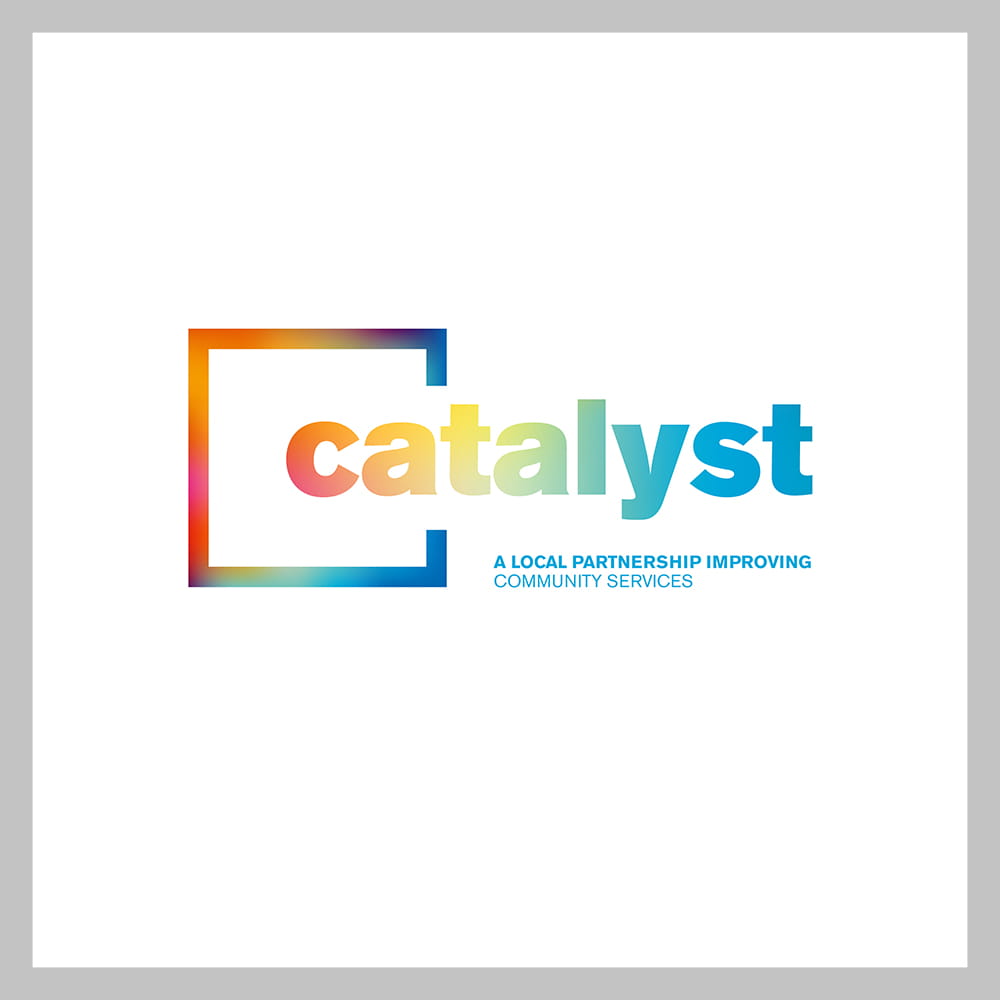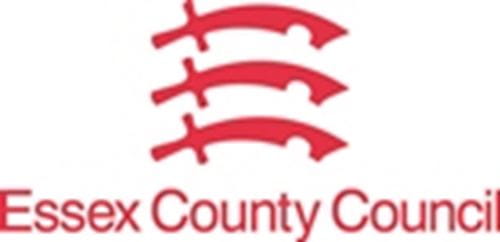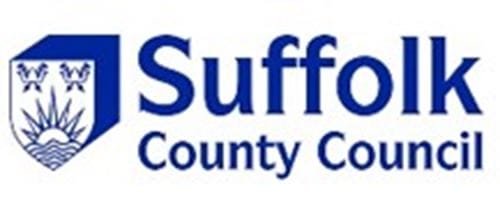Catalyst Project

The Catalyst Project ended on 30 June 2020. These web pages are no longer updated and have been archived. Read our impact case study about the Catalyst Project to learn more about it.
Project Overview
The Catalyst Project is a local partnership between University of Essex, Suffolk County Council and Essex County Council working to improve community services for vulnerable people.
"We are very pleased to be working with the University of Essex as part of the Catalyst Project. Our priorities are growing Suffolk’s economy in a way that everyone can benefit, improving health and wellbeing and delivering efficient and effective public services to our residents. The detailed work on data we’ve been able to do for the first time with support from the Catalyst Project has huge potential and will help us to deliver our aims in the coming years."
Using the University’s wealth of expertise in data analytics, big data and evaluation, we are developing new technology to assess and predict risk, and to evaluate the impact and effectiveness of public service initiatives dedicated to community members needing support.
The work carried out by the project's teams at the University will enable Suffolk County Council and Essex County Council, which serve a combined population of 2.5 million people, to target public service initiatives where they are most needed, improve outcomes through earlier intervention, and introduce new evidence based evaluation techniques to determine their full impact.
The project further strengthens the University’s relationship with the local community through its work to increase volunteering opportunities for students providing benefits for both community and students alike.
In 2015, the project was awarded £2.2 million from the Catalyst 'universities as anchors' funding initiative by the Higher Education Funding Council for England (HEFCE), a non-departmental public body that funds innovative and strategic projects. The Project runs for 4 years and is now monitored by the Office for Students.
"The collaborative partnership between Essex County Council, the University of Essex and Essex Police has put us at the forefront of local authorities using the power of data science and artificial intelligence (AI) to tackle public policy challenges. We are investing in shared resources across our organisations to make Essex a place that is exemplar for integration of data across public bodies and to create the best data science and analytical capabilities in the UK to benefit our people and communities."
Our three main initiatives
The Catalyst Project is a collaboration across University academic disciplines working with a number of local organisations to deliver initiatives under the following key areas:
Catalyst publications and media
Reports
Case studies
- Pilot Programme for Local Area Coordination (LAC) (.pdf)
- School Readiness in Essex (.pdf)
- Essex Data (ED) Programme (.pdf)
- Essex County Fire & Rescue Services pilot programme (.pdf)
General
- Suffolk Multi-Agency Safeguarding Hub (MASH) partnership (.pdf)
- Evaluation Team Leaflet (.pdf)
- Risk Stratification Team Leaflet (.pdf)
- The Future of Predictive Analytics in Councils (.pdf)
- How to work collaboratively with the University of Essex (.pdf)
- Evaluating the ‘Accidental Dwelling Fires’ programme - presentation to Essex Country Fire and Rescue Services (November 2018) (.pptx)
- Essex County Council’s Challenge Dementia Prize – interview with the Dementia Team (.PDF)
Spotlight toolkit
- The spotlight toolkit (.pdf) has been created to enable any organisation to create their own evaluation process to assess the impact and effectiveness of their programme or services.
Impact
Work carried out by the Catalyst Project benefits:
Our local communities
- Channelling expertise at the University to support and enhance services provided by Essex County Council and Suffolk County Council that protect vulnerable individuals.
- Providing local charities and community based volunteering with increased numbers of volunteers.
Our local councils and their partners
- Developing tools using new technology and expertise to enable Suffolk County Council to use their data to greater effect.
- Providing Essex County Council with impartial assessment of automated decision making platforms purchased by the Council to achieve effective analysis of their data.
- Providing an evaluative led vision and approach to capacity building that will enable Essex County Council to meaningfully evaluate community services for vulnerable people in the county.
Our University research
- Increasing our research profile externally through the dissemination of academic papers and policy briefs.
- Knowledge exchange through delivery of training to public service providers.
- The generation of research impact by influencing policy change for local authorities.
Our students
- Providing them with the opportunity to build on their strengths, gain valuable life skills, widen their horizons and make an invaluable contribution to their local community.
Past events and presentations
LARIA Conference - 15 May 2019
A presentation to illustrate the benefits and the risks of collaborations between universities and councils was delivered at the Local Area Research Intelligence Association (LARIA) Annual Conference on 14-15 May.
The session was conducted by a team of researchers based at the University of Essex who have been working with Suffolk County Council to assess risks for vulnerable members of the community. Their presentation provided insights into how and when working with universities is beneficial to councils.
Resilience Index and resilience policy database showcase - 21 May 2019
This showcased the Resilience Policy Database and the Resilience Policy Proximity Index, developed by the Catalyst Project, which were designed to improve measures of resilience at national and local levels in the context of emergency planning and management.
The day involved presentations from academics working in the areas of resilience, disaster and emergency management in different contexts (environmental, governance, legislative and regulatory).
These were followed the a presentation of the Resilience Policy Database and the Resilience Policy Proximity Index as well as the model and data that the team developed, and a demonstration of the data tool and how it can be used.
Programme
10:00am Registration and coffee
10:30am - Welcome and opening to the day - Dr. Gina Yannitell Reinhardt, Department of Government.
10:45am - Incentivising Resilient, Sustainable Development: What can Computerised Text Analysis Reveal? - Dr. Gina Yannitell Reinhardt, Department of Government (with Dr. Kakia Chatsiou).
11:15am - Understanding the Ecological Impacts of Climate Change - Dr. Alex Dumbrell, School of Biological Sciences.
11:45am - Coffee break.
12:00pm - The double-edged sword of learning from disasters: Mortality in the Tohoku tsunami - Dr. Alejandro Flores Quiroz, Department of Government, (joint work with Professor Thomas Plümper and Professor Eric Neumayer).
12:30pm - Lunch.
13:30pm - Designing for Community Resilience using Social Networks - Dr. Jon Chamberlain, School of Computer Science and Electronic Engineering.
14:00pm - Ensuring Collaborative Accountability and Governance in Disaster Recovery - Professor Kelum Jayasinghe, Director - Centre for Environment and Society (CES), Essex Business School (EBS).
14:30pm - Break.
14:45pm - The Resilience Policy Database and the Resilience Index - Rationale and Demonstration - Queal King, Department of Economics; Dr. Kakia Chatsiou, Department of Government (with Dr. Gina Yannitell Reinhardt).
15:30pm - Discussion and round up.
Catalyst Conference - 26 June 2019
The Catalyst Project team were delighted to have welcomed 132 attendees from 34 organisations to our conference on 26 June 2019.
The Catalyst Conference hosted a lively panel debate on how digital innovation and system change can be implemented in public service organisations. A further panel discussed the legal and ethical considerations required for effective data sharing and fielded a range of challenging questions from the audience.
Seven workshops showcased the outputs from collaborative Catalyst Project initiatives. Our Conference album showcases the photos of the day, and you can find out more about the speakers and workshops.
Feedback received was very positive. The majority of attendees found the conference very informative and stated that they encountered specific areas of learning that could positively impact on their work or that of their organisation. 42% reported that the analysis techniques or tools presented at the Conference could be implemented in their work or that of their organisation. The topics of most interest were the workshops on impact evaluation, predictive data analysis and data sharing.
Conference Programme
9.30am - Registration
10am - Conference welcome by Professor Lorna Fox O'Mahony, Deputy Vice Chancellor, University of Essex
10.10am - Keynote 'Using digital Innovation to improve public services’ delivered by Stephen Kavanagh, Ex Chief Constable of Essex Police and National Lead for Digital Policing Portfolio
10.30am - Panel debate 'Digital innovation within local government implementing system change, and the importance of collaborative multi-agency partnerships” discussed by:
- Gavin Jones, Essex County Council Chief Executive
- Nicola Beach, Suffolk County Council Chief Executive Officer
- Ben-Julian Harrington, Essex Police Chief Constable
- Professor Maria Fasli, University of Essex, Director of Institute for Analytics and Data Science and the Business and Local Government Data Research Centre
11.45am - Catalyst initiatives breakout sessions:
- The Spotlight Toolkit: Helping you become a better evaluator
- Data Sharing: How to overcome organisational/behavioural issues to allow effective data sharing between organisations. A solution focused workshop
- Application of predictive analytics in social care: tools to support decision making
1pm - Lunch and networking
2pm - Catalyst initiatives breakout sessions:
- Data + People + Action = Essex Centre for Data Analytics
- Essex Police case study
- Evaluating community resilience: A new database can help strengthen resilience in your own community
- Stats Maps Chats: Using ethnographic research and asset mapping to explore perceptions of antisocial behaviour and domestic abuse
3pm - Panel debate 'The legal and ethical considerations required for effective data collection, sharing and analysis' discussed by:
- Suffolk Office of Data Analytics (SODA)
- Essex Centre for Data Analytics (ECDA)
- University of Essex
- Essex Police
3.45pm - Conference round-up from Professor Lorna Fox O'Mahony, Deputy Vice Chancellor, University of Essex
4pm - Conference close
Conference materials
- Workshop A: The Spotlight Toolkit (.pdf)
- Workshop B: Data sharing (.pdf)
- Workshop C: Data analysis in policing serious crime (.pdf)
- Workshop D: Essex Centre for Data Analytics (.pdf)
- Workshop E: Predictive analytics in social care (.pdf)
- Workshop F: Evaluating Community Resilience (.pdf)
- Workshop G: Stats Maps and Chats (.pdf)
Essex Volunteering Hub launch – 6 December 2019
The Catalyst Project launched the new Essex Volunteering Hub (EVHub), where students can find locally-based volunteering opportunities in one place. The EVHub hosts both University led volunteering activities and locally based volunteering organisations and provides an easy accessible portal to advertise their volunteering opportunities to students.
The launch was the culmination of the combined efforts of the Catalyst Project and the Students’ Union to streamline the University’s volunteering processes and to increase the capacity to enable more students to be able to volunteer.
The launch showcased a new software platform to current and new community based organisations who provide volunteer opportunities. The programme included presentations from student volunteers and time to make and build relationships with the Students’ Union and key representatives from University groups who work with external organisations.
Essex Volunteering Hub launch presentations







